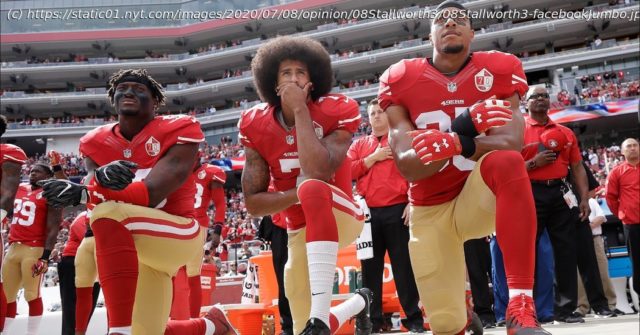If the league wants to show its commitment to its players, it should hire and promote more Black coaches and executives.
In response to the Black Lives Matter protests, the N. F. L. has decided to play “Lift Every Voice and Sing,” known as the Black national anthem, in Week 1 of its coming season.
As a former N. F. L. player, my initial reaction was: why?
Is this a sign that the N. F. L. is serious now, that it truly wants to honor its commitment to promote racial equality in the league? Or is it just a symbolic gesture, one meant to placate its players, without any meaningful change?
Don’t get me wrong, symbolism can be a powerful thing. “Lift Every Voice and Sing” is a fixture of Black life, a celebration of our tumultuous experience — the struggle and triumph, the joy and pain of being Americans.
The song was originally a poem, written by James Weldon Johnson, the historian, author and civil rights activist. He was no stranger to police brutality. In his book “Black Manhattan,” he describes Black people running away from white mobs during the New York race riot in 1900, only to be violently beaten by the police officers, from whom they had sought protection. An investigation into the police violence was turned on its head and the police were treated as if they were the victims of a crime.
Similar themes are playing out today: no accountability and no justice.
The N. F. L. has had plenty of opportunities to be on the right side of history. It could have supported Colin Kaepernick and other players who took a knee four years ago to protest police brutality and racial inequities in the U. S. justice system. But the league failed to protect them, when the players needed them most.
It was only last month that the league issued an apology of sorts, admitting that “it was wrong for not listening to N. F. L. players earlier.






